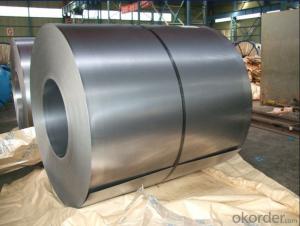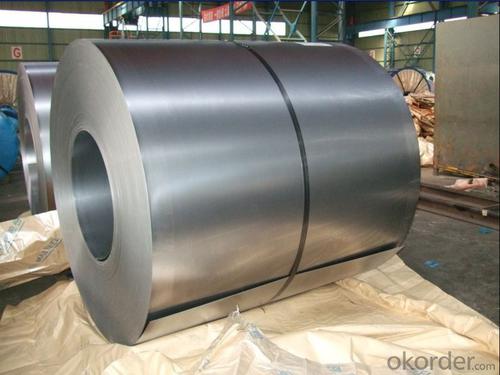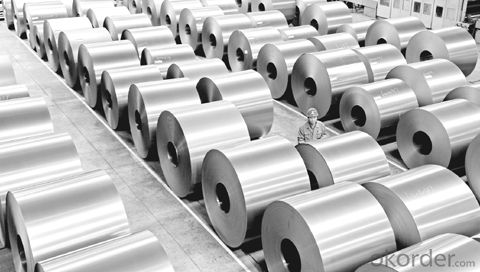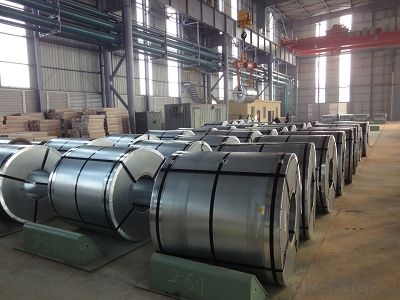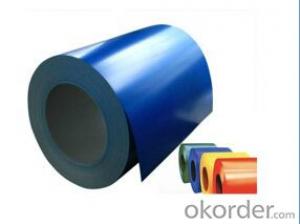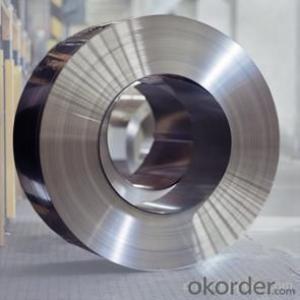Electrical Machine Silicon Steel for Power and Transformer Core
- Loading Port:
- Shanghai
- Payment Terms:
- TT OR LC
- Min Order Qty:
- 25 m.t.
- Supply Capability:
- 10000 m.t./month
OKorder Service Pledge
OKorder Financial Service
You Might Also Like
Specifications:
1. Thickness:0.50mm
2. Width:1200mm
3. Coil Weight: 4--8 tons
4. Model Number: 50W800
5. Type: Steel Coil
6. Surface Treatment: C-4 Insulated Coated
7. Package: Standard Seaworthy Package with Wooden Pallet
8. Application: motor, Electric Engine, dynamo, transformer, electromagnetic switch, reactor, Magnetic amplifiers, ballast, relay, Yoke flow circle and other industry usage.
Advantages
1- low core loss and perfect magnetic induction
2- Good punch ability and processability, especially for small or mini motors
3- Good surface smoothness and flatness, low tolerance, high lamination factor
4- Excellent insulating film, good heatproof, smooth and thin film, high electric resistance,
good adhesion, precise punch ability, corrosion resisting and anti-rust
5- Stable performances and competitive prices
Application
Electric generator, transformer, small & micro motor and other related electrical appliances.
Power and transformer cores, toroidal cores , R-core, O-core, C-core and clamp meter cores . The products are widely used in electrical machine and associated industries
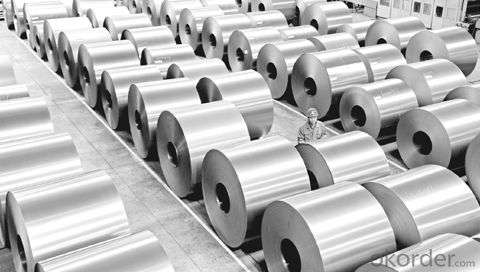
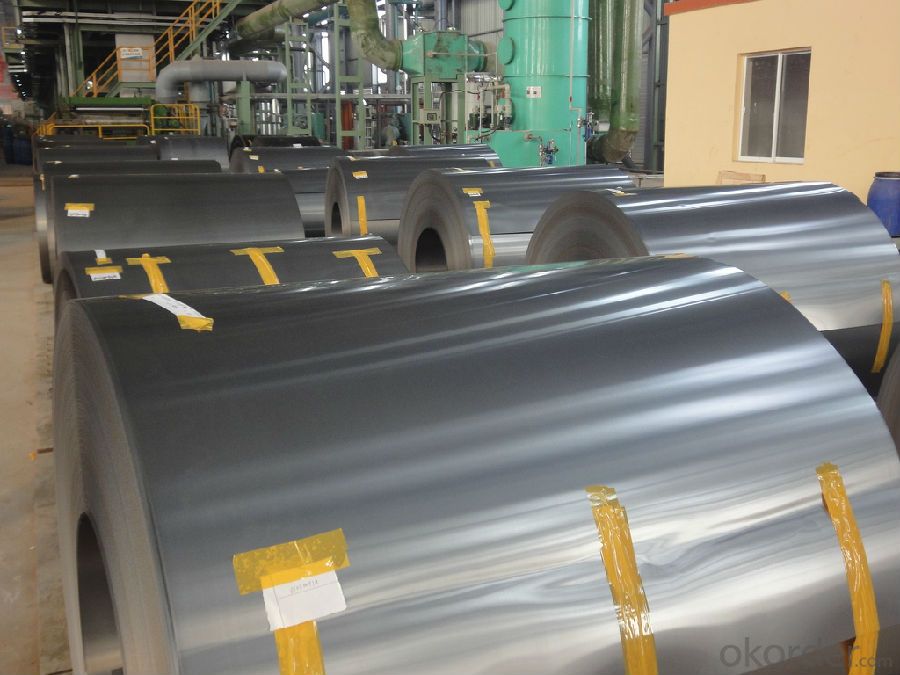
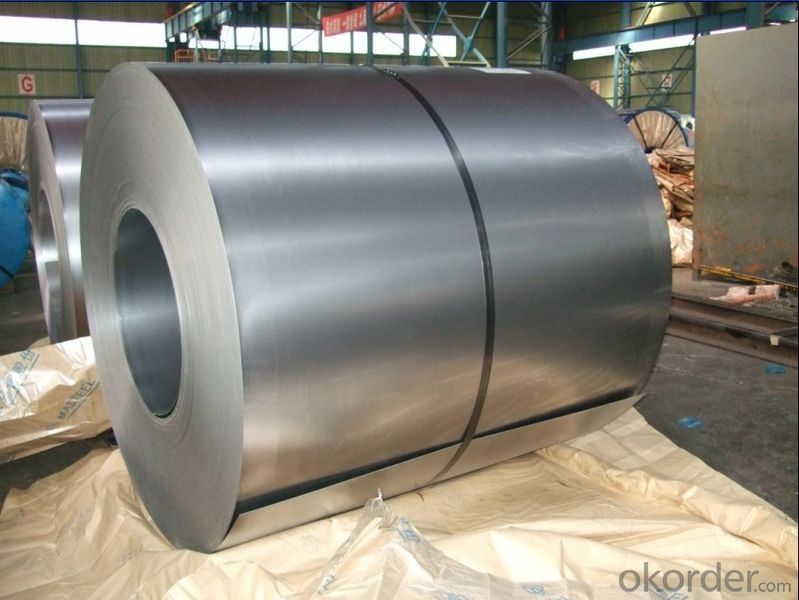
- Q: I just bought a used Taurus 85 stainless 38 spl revolver, it's about 25 years old but looks like new. This is my first stainless steel gun. I'm wondering if there's any special things I need to be aware of or cleaning methods? I'm also wondering if stainless steel could rust? in theory stainless means it cannot get stained or rusty. I have a chrome bore AK, cleaning is always super easy, wondering of cleaning a SS revolver would be the same.
- Stainless steel WILL rust, but it takes longer. Just think of Stainless as stain less - less, but still present. Clean it as you would any other blued firearm. Keep the same coating of protective oil or preservative lubrican on it as you would a blued gun, and it will look shiny pretty much forever. Stainless steel is not rustproof...it is merely MUCH more forgiving of a harsh world than blued steel. Stainless is not the same as hard chrome. Stainless is STILL steel...so you may have to brush it in places a lot to get the crud out, especially after those thousand-round marathon shooting sessions. But the results are pretty impressive, as you will soon see. Happy shooting!
- Q: Can steel coils be galvanized?
- Yes, steel coils can be galvanized. Galvanizing is a process of applying a protective zinc coating to steel to prevent corrosion and increase its durability. Steel coils are commonly galvanized to enhance their resistance to rust and other forms of corrosion.
- Q: How are steel coils inspected for defects after rewinding?
- Steel coils are inspected for defects after rewinding through a thorough visual examination and various non-destructive testing techniques such as ultrasonic testing, magnetic particle inspection, and eddy current testing. These methods help identify any surface defects, internal flaws, or deviations in dimensions, ensuring the quality and integrity of the steel coils.
- Q: How are steel coils tested for flatness and straightness?
- Steel coils are commonly tested for flatness and straightness using various methods such as visual inspection, measuring with straightedges, laser-based measurements, or using specialized equipment like tension leveling machines. These tests ensure that the steel coils meet the required standards and are suitable for further processing or use in various industries.
- Q: Aluminum alloy rolling doors and color steel shutter door that good
- Among them, aluminum alloy rolling doors and ordinary rolling doors, both from the appearance, environmental protection or safety, have considerable advantages. Aluminum Alloy doors can be sprayed on the surface of various colors and patterns, but also with the concavity of the wood, sand grain coated, highlight the noble temperament, improve grades, if it is used in shops, you can let your talent shows itself in many shops in the.
- Q: I need to say how a bottle opener is made, would it be made from steel and can this be coloured? How?
- Steel can be plated(Chrome),Blackened(Black Oxide),Powder coated(color of your choose).All of this is done to prevent rust.All of these aforementioned processes can be worn off through being used.I suggest polished Stainless steel.
- Q: the comparison needed between other steel
- BECAUSE IT HAS HIGH STRENGTH. IT HAS HIGH TOUGHNESS IT HAS LOW PERCENTAGE OF CARBON 0.05% TO 0.30% CAN BE USED AS GEARS,CRANKSHAFT
- Q: For example, (and this is weird) if I were wearing a steel collar and I needed some way to remove it, with limited supplies.Force is difficult because it would be around my neck.Chemical cominations are great- but they have to use VERY common products. And I'm not sure what to use.Other ideas?
- Your best bet would be a grinding wheel attached to a small electric motor. Even if you slipped, your skin is too soft to be cut by the dull wheel. Steel, however, is easily cut. But perhaps you don't have access to electricity or pressurized air to run such a tool. In that case, a simple file would work well, though you'd be somewhat more likely to injure yourself. If you had no tools, but access to whatever chemicals you wanted, you could try a weak acid. This would take a long time, and require constant scrubbing to bring fresh acid into the pits in the metal, but it would eventually eat through the collar.
- Q: How are steel coils processed for edge trimming or shearing?
- Steel coils are typically processed for edge trimming or shearing by using specialized machinery such as slitters or shears. These machines are designed to cut the excess edges of the coil, ensuring uniform and precise dimensions. The coils are fed through the machine, where the excess material is removed, leaving clean and straight edges. This process helps to enhance the quality and appearance of the steel coils, making them ready for further manufacturing or fabrication.
- Q: So...I'm learning about how steel is made and I'm wondering if there is a more environmentally friendy method. I view it as unfriendly b/c of the oxygen that is injected when the steel is in the blast furnace or electric arc furnace. This oxygen bonds w/ the carbon to produce CO and CO2. THis is necessary to reduce the amount of carbon content to produce harder steels. So what other methods are there that can be used w/o having to end up w/ co and co2? thanks
- From what I understand of it, US steel is better as the steel is more recycled than Canadian, so a lot of that oxygen / CO2 has already taken place compared to working from ore. The second reason US steel is environmentally ahead of Canadian is that US tends to use Electric Arc, while Canadian uses Basic Oxygen, Basic Oxygen uses more energy than electric arc, and I think it also uses more oxygen, but I would suspect that oxygen that it uses is 'waste oxygen' and not converted into Co2 because the Co2 process is limited by the carbon, and steel only has so much carbon.
Send your message to us
Electrical Machine Silicon Steel for Power and Transformer Core
- Loading Port:
- Shanghai
- Payment Terms:
- TT OR LC
- Min Order Qty:
- 25 m.t.
- Supply Capability:
- 10000 m.t./month
OKorder Service Pledge
OKorder Financial Service
Similar products
Hot products
Hot Searches
Related keywords
